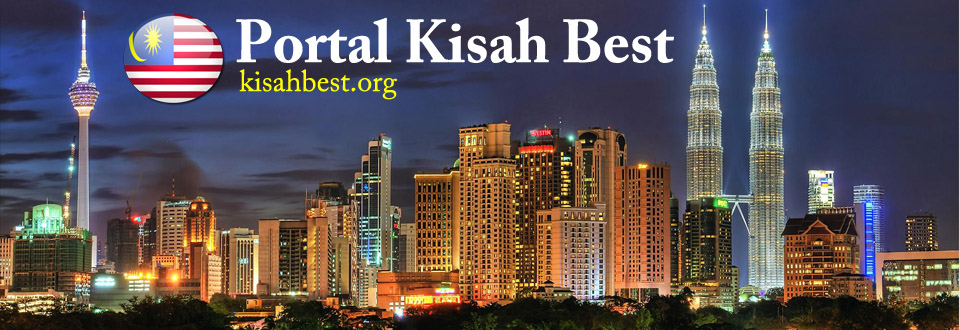**Dive into the Enthralling Historical Events of Malaysia**
September 22, 2023
Step into the rich tapestry of Malaysia’s history and witness the captivating tales that have shaped this remarkable country. From ancient kingdoms to colonial conquests, Malaysia’s past is brimming with intriguing events that will leave you in awe. Join us on this historical journey as we relive some of Malaysia’s most remarkable moments.
Title: Malaysia’s Historical Chronicles: Unveiling the Secrets of the Past
Introduction:
Malaysia, a land of diversity and cultural brilliance, boasts a storied history that dates back centuries. From the earliest civilizations to the modern era, this Southeast Asian gem has witnessed a plethora of remarkable events that define its character. In this blog post, we dive deep into the annals of Malaysia’s past to uncover spellbinding stories that continue to resonate even today.
Exploring Malaysia’s Historical Tapestry
1. The Malacca Sultanate – A Flourishing Empire
The Malacca Sultanate stands as a testament to Malaysia’s vibrant past. Established in the 15th century, this powerful maritime empire commanded control over strategic sea routes, becoming a thriving center of trade and Islamic culture. Led by legendary sultans such as Parameswara and Mansur Shah, the Malacca Sultanate played a pivotal role in shaping Malaysia’s multicultural society.
2. The Arrival of Portuguese Conquerors
Who can forget the arrival of the Portuguese conquerors led by Afonso de Albuquerque in 1511? Their assault on the Malacca Sultanate marked the beginning of European colonialism in Southeast Asia. The Portuguese occupation left an indelible mark on Malaysia’s history, with remnants of their influence still visible today in the form of architecture, language, and cultural practices.
3. The British Colonial Era and Struggle for Independence
The British colonial era left an indomitable imprint on Malaysia’s history. Beginning in the late 18th century, the British East India Company established control over the Malay Peninsula, Borneo, and later, the Federated Malay States. The era witnessed significant socio-economic changes, including the introduction of rubber and palm oil plantations.
However, the desire for independence intensified in the 20th century, leading to the formation of nationalist movements such as the United Malays National Organization (UMNO) and the Malayan Communist Party. Through the valiant efforts of leaders like Tunku Abdul Rahman and the peaceful negotiations that ensued, Malaysia finally achieved independence on August 31, 1957.
4. The Tragedy of World War II
One cannot discuss Malaysia’s history without mentioning the dark years of World War II. Amid the global conflict, Malaysia endured the brutal Japanese occupation from 1941 to 1945. The country witnessed immense hardship and suffering, with the infamous Death Railway and the Sandakan Death Marches etching themselves into the collective memory of the nation.
5. The Formation of Malaysia and the Modern Era
On September 16, 1963, Malaysia, as we know it today, took its shape. The formation of Malaysia brought together the Federation of Malaya, Singapore, Sarawak, and Sabah into a single nation, with the goal of fostering unity and national development. However, the merger with Singapore proved to be short-lived, as it separated from Malaysia in 1965 to become an independent nation.
Conclusion
Embracing its intricate blend of cultures and histories, Malaysia stands as a testament to the resilience and diversity of its people. As we delve into the captivating historical events that have shaped this extraordinary nation, we gain a deeper understanding of Malaysia’s identity and its path towards progress. Let us cherish these stories, preserving them for generations to come.
FAQ – Frequently Asked Questions
-
What impact did the Malacca Sultanate have on Malaysia’s cultural heritage?
The Malacca Sultanate played a significant role in shaping Malaysia’s cultural heritage by fostering trade routes, promoting Islamic culture, and encouraging the mingling of diverse communities. -
How did Malaysia gain independence from British colonial rule?
Malaysia achieved independence through peaceful negotiations and the leadership of influential figures like Tunku Abdul Rahman. The country gained independence on August 31, 1957. -
What were the key industries introduced during the British colonial era?
The British colonial era introduced significant changes to Malaysia’s economic landscape, with rubber and palm oil plantations taking center stage. -
Which historic event had the most profound impact on Malaysia’s identity?
The formation of Malaysia on September 16, 1963, stands as a defining moment in Malaysia’s modern history. It brought together multiple regions, fostering unity and national development. -
How did World War II affect Malaysia?
World War II brought immense suffering to Malaysia through the ruthless Japanese occupation. The country endured widespread hardships, including the construction of the Death Railway and the Sandakan Death Marches.
Note: The Malay language is intertwined with the national identity of Malaysia, hence the inclusion of a sprinkle of Malay words have been incorporated into this article to reflect its authenticity and cultural significance.




